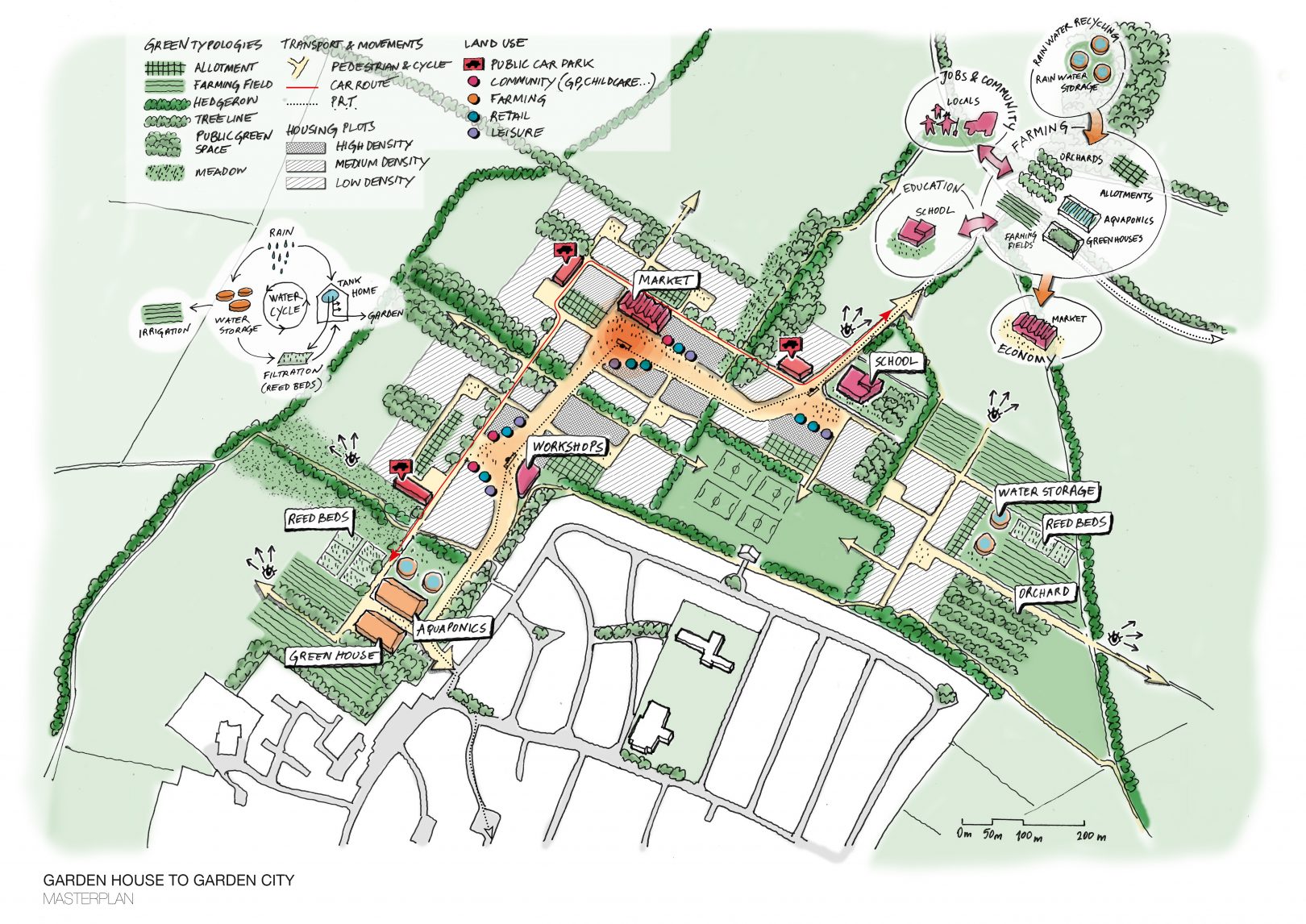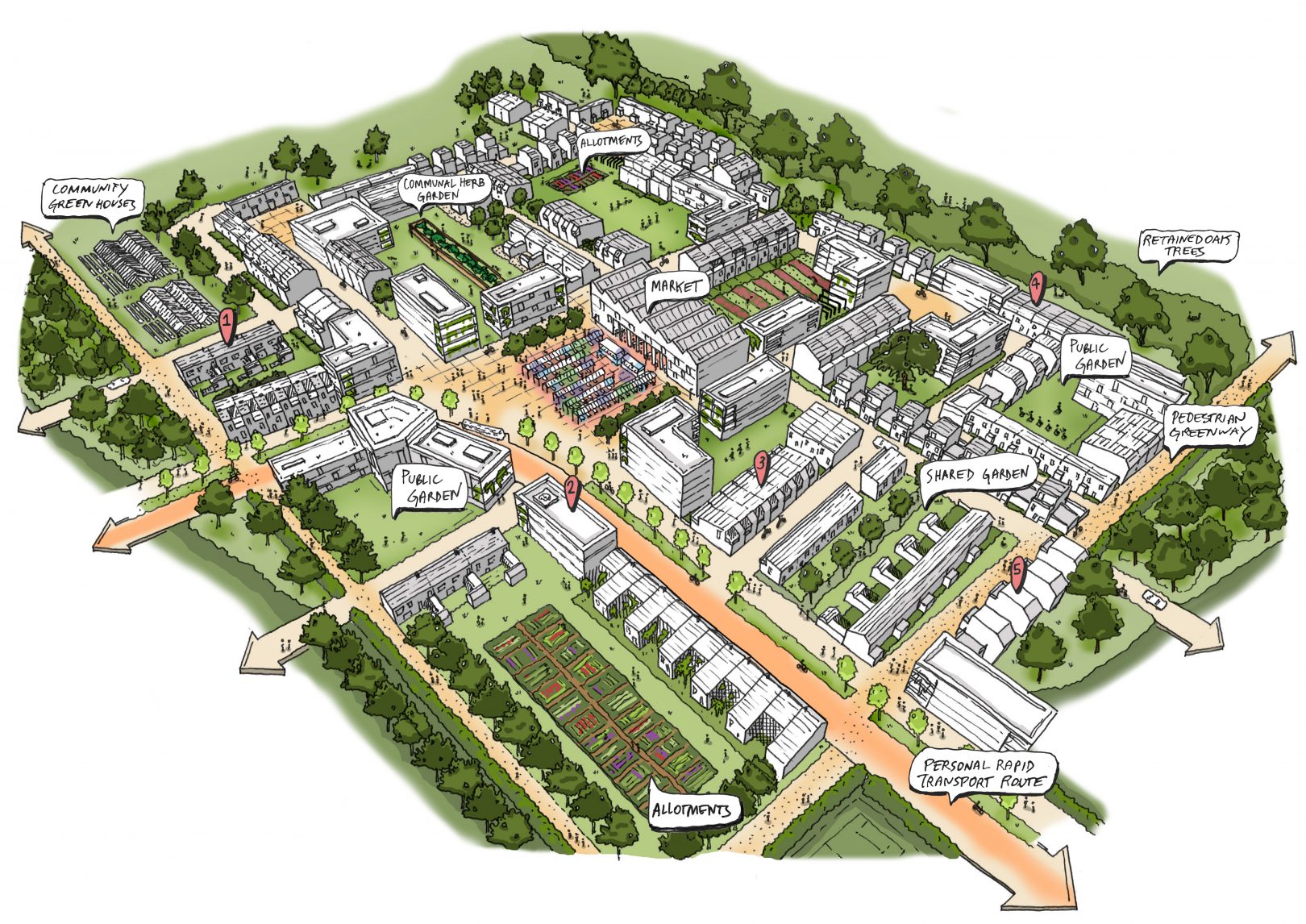Dispersed suburbs
Letchworth Garden City was the first holistically planned new settlement of the garden city movement, which aimed to combine the best aspects of town and country living. The competition brief issued by RIBA on behalf of the Letchworth Garden City Heritage Foundation invited practices to draw up proposals for a landmark 44.5 ha site to the north of the garden city. Founded in 1903, Letchworth was extended in the 1980s but still largely consists of countryside-style
detached and semi-detached houses, with large private gardens back and front, driveways and garages; pleasant yet dispersed suburbs without sufficient concentration of people to support effective public transport. While the centrally located railway station provides good connections to London and other regional centres, access and interchange on a local level is poor. At present over 50 per cent of commuter journeys are made by car.
Walkable neighbourhoods
Our new garden city re-thinks the local transport infrastructure to provide an on demand shared transit network serving a rationalised series of nodes. The cyclical route connects all key points into a single loop.
Developments are concentrated within a 400 metre radius of each node to create walkable neighbourhoods. Bus and cycle routes connect south through The Grange into Letchworth promoting sustainable travel. Car routes are restricted with three shared car parks along a peripheral road.
A variety of house-types, with courtyards, balconies and terraces replace over-sized private gardens. These provide a close relationship with the interior spaces and are generous enough to accommodate a range of uses and users. The reduced private gardens are supplemented by a rich and diverse series of semi-public and public spaces, providing an opportunity to retain the maximum amount of existing countryside with the potential to introduce additional trees, hedgerows, habitats, agriculture and leisure spaces on a much more ambitious scale than the original garden city masterplan.
The green spine acts as a high street, linking up the three communities each with a different focus - self-building and craftsmanship, market and trade, education and culture. These three micro-communities benefit from one another and work together to contribute to self-sufficiency. The density within these clusters varies, with higher density around the local centre, radiating around public spaces, with lower densities around the edge.
A green network links up farming spaces, greenways and hedgerows. The landscape becomes productive with clear functions spread across the area and within the communities: allotments, farming fields, orchards, reed beds, aquaponics, greenhouses, meadows and rainwater storage.
The proximity of the different centres enable the new community to develop independently as well as in partnership with Letchworth, and promotes an alternative way of living, focused on a sustainable approach to community life.


